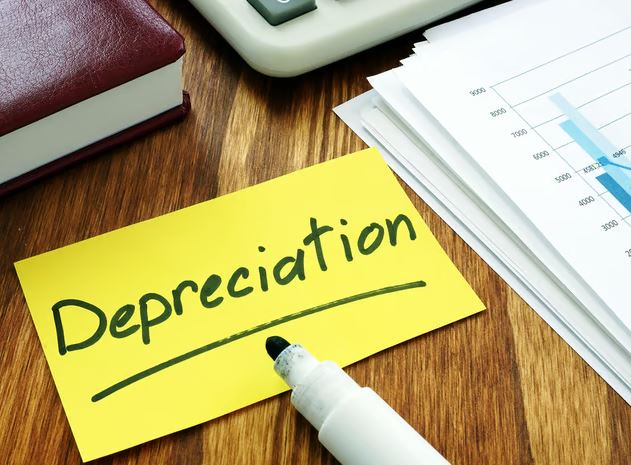Depreciation is a major concept in the world of accounting and finance. It is a concept that enables companies to indicate the decrease in the value of their assets over the course of time. But, not all assets have to go down in value. Some may hold their value or be dealt with in a different way under the accounting standards. Which asset, therefore, cannot be depreciated?
The blog not only defines depreciation but also names the kinds of non-depreciable assets, thus providing a clear picture to business owners, accountants, and financial professionals.
What is Depreciation?
Simply, depreciation is a way in which accountants allocate the cost of a physical asset to its life span. It basically means that things like machines, cars, and office equipment become less valuable as they get older due to wearing out, being replaced by new things, or getting used.
In this way, the cost of the asset is shared over several accounting periods, businesses get a more realistic picture of their asset’s value and are also able to deduct from their taxable income for a certain period, i.e. they get a tax break.
Why Understanding Depreciation Matters

It is important to know which assets are eligible and which are not to be depreciated for:
- Accurate financial statements
- Tax returns that comply with the law
- Good use of capital budgeting
- Strategic management of assets
Improperly depreciating an asset that is not eligible can result in misstatements in financial records, tax penalties, and performance metrics that are not correct.
What Kind of Assets Cannot Be Depreciated?
Assets that retain their value with time and are not aimed for income-generating purposes are generally non-depreciable. Let’s explore the most typical non-depreciable assets.
1. Land
Land is the number one asset people think of when talking about non-depreciable assets. Carrying on with this analogy, the land is like the machines, and the land does not get worse or use up over time. Most of the time, land goes up in price.
Yet when a property—including a building on land—sells, only the building can be depreciated in this scenario because the land itself can’t be depreciated.
Keypoint : If you are going to add land to your balance sheet, ensure it is included in the non-depreciable assets category and clearly distinguish it from your buildings or other depreciable assets to prevent misleading reporting.
2. Investments (Stocks, Bonds, Mutual Funds)
Financial assets such as:
- Common and preferred stocks
- Bonds
- Mutual funds
- Exchange-traded funds (ETFs)
They are reflected as investments on the balance sheet, and usually, the value of such assets is changed by fair market value adjustments.
3. Collectables and Personal Belongings
Few examples of these are:
- Artwork
- Rare coins
- Antiques
- Personal Jewellery
- Memorabilia
If they have not been employed in the business, e.g., artwork exhibited for commercial activities, they cannot be
4. Inventory
Inventory is an asset of a company that is in the present, rather than a fixed or long-term one. The assumption is that it will be sold in a brief period, typically within a year. Consequently, it is charged to the cost of goods sold (COGS) upon sale, instead of being depreciated over the period.
In case some of the stock becomes obsolete or is going to perish, accounting takes care of it using write-downs and not depreciation.
5. Personal-Use Property
Depreciation is relevant only for assets used in business, not for personal items. Just to illustrate:
- Your car for personal use
- Your home for private use
- Your TV or furniture in your house
What is a Depreciable Asset?
For an asset to be depreciable, it must:
- Be the business’s property
- Have a life expectancy of more than one year
- Be utilized in a business or an income-generating activity
- Have a measurable lifespan
Why Are Some Assets Not Eligible for Depreciation?
Assets that are not subject to physical damage, do not decrease in market value, or are not used in a business do not correspond to depreciation characteristics.
In addition, the Internal Revenue Service (IRS) and other tax agencies set out explicit rules to limit the improper use of depreciation deductions on tax returns.
Importance of Accurate Asset Classification
There are several reasons why proper classification of your assets is important:
- Preventing tax troubles or an audit
- Making financial statements more reliable
- Allowing better decisions with trustworthy information
- Facilitating the correct use of depreciation deductions
Financial experts play a critical role in assisting with the defining attributes of assets and their adherence to accounting frameworks such as GAAP or IFRS.
Final Thoughts
Knowing what property you can’t depreciate is important to ensure correct financial reporting and compliance. Unlike the income derived from assets such as land, investments, collectables, personal-use items, etc.
Businesses, by distinguishing the assets that are depreciable from those that are not, can:
- Correctly depict their financial situation
- Make the best use of tax strategies
- Keep adhering to the regulations
Correct asset classification is not only about fulfilling the requirements; it is also about investing in financial transparency and sustainability for the future.









